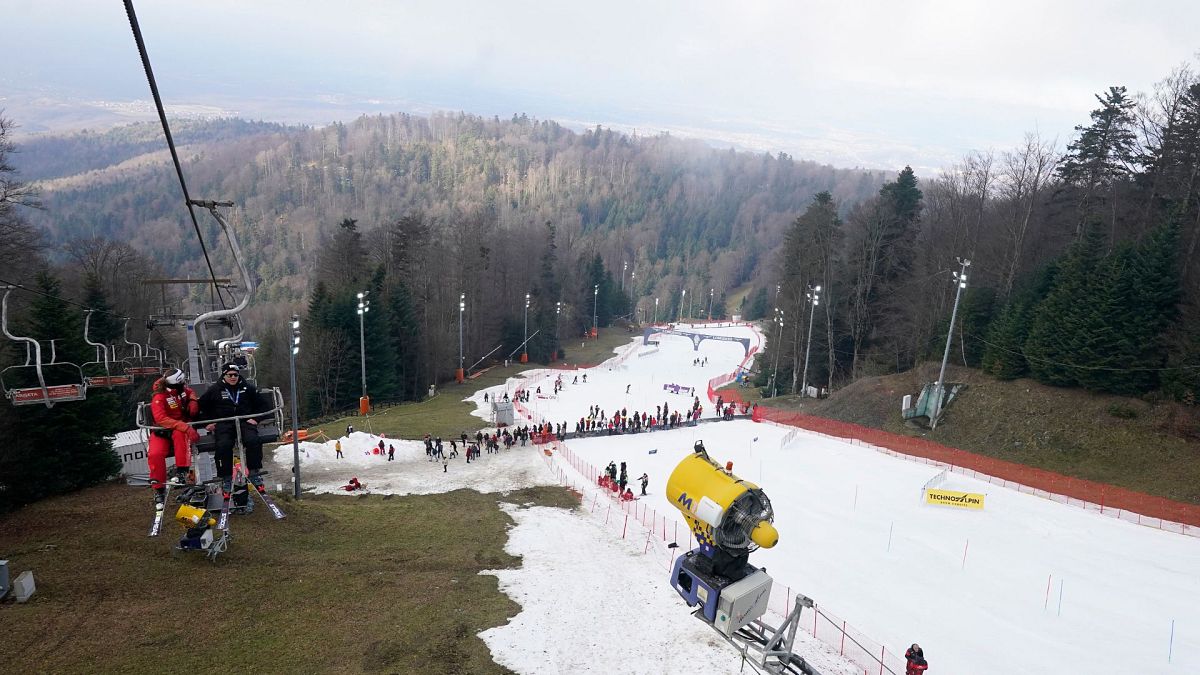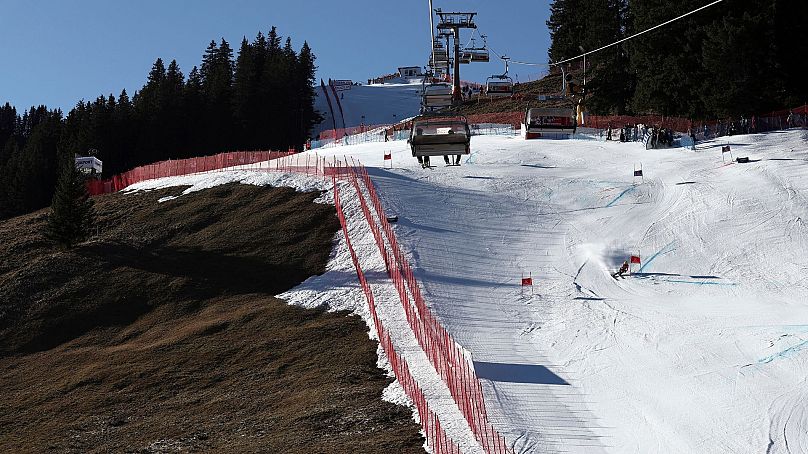Climate change could finish winter sports. Meanwhile big polluters are pouring money into ski sponsorships.
Snow cover is melting as global heating intensifies - yet fossil fuel polluters are pouring money into winter sports.
This “ironic” relationship will “destroy the very conditions [winter sports] need to survive,” a report from campaign group Badvertising and thinktank New Weather Sweden have warned.
The researchers identified 107 ‘high carbon’ sponsorship deals with event organisers, teams and individual athletes.
Car companies were the most prolific sponsors, bagging 83 sponsorship deals. Of these, Audi paid for 54.
Fossil fuel companies and airlines were engaged in 12 and 5 deals respectively.
“With their clean, healthy outdoor image, winter sports are especially attractive to sponsorship from major polluters who want to ‘sportswash’ their image,” the report warns.
“Through their pollution, high-carbon sponsors of winter sports are melting the future of the very sports they sponsor.”
How is climate change altering winter sports conditions?
As the world warms up, the seasons are not what they once were. Reliable snowfall could soon be a thing of the past.
A study by the University of Waterloo in Canada has found that of the 21 sites that have previously held Winter Olympic Games, nine may be unreliable to host the games again by 2050.
In January, ski resorts across Europe were forced to temporarily close after record-high temperatures reduced their slopes to slush.
Ski resort Ax 3 Domaines, lying close to France’s border with Andorra, shut completely while Le Gets and Morzine, in the popular Portes de Soleil area, closed all but two runs.
In the mid-latitudes of the Northern hemisphere, winters are expected to shrink at a rate of 4.7 days per decade.
How can we stop sportswashing?
Fossil fuel emissions and climate change represent an existential threat to the sport.
The emissions of Preem and Volvo - two sponsors of Sweden’s famous Vasaloppet, the world’s biggest cross-country ski race - are estimated to be responsible for the loss of 1,260 million tonnes of glacier ice each year, or 210 square kilometres of snow cover.
“This amounts to melting the equivalent of 233 Vasaloppet ski races,” the report warns.
Car companies were the number one cause of emissions in 2023.
The transport sector accounts for a quarter of global fuel-related greenhouse gas emissions, with half coming from private vehicles, including passenger cars and trucks.
By accepting money from companies that produce these emissions, winter sports are signing their own death warrant.
The report urges governments to adopt a ban on fossil fuel advertising.
“Marketing of many harmful products, such as tobacco or alcohol, is already banned or regulated,” they urge.




